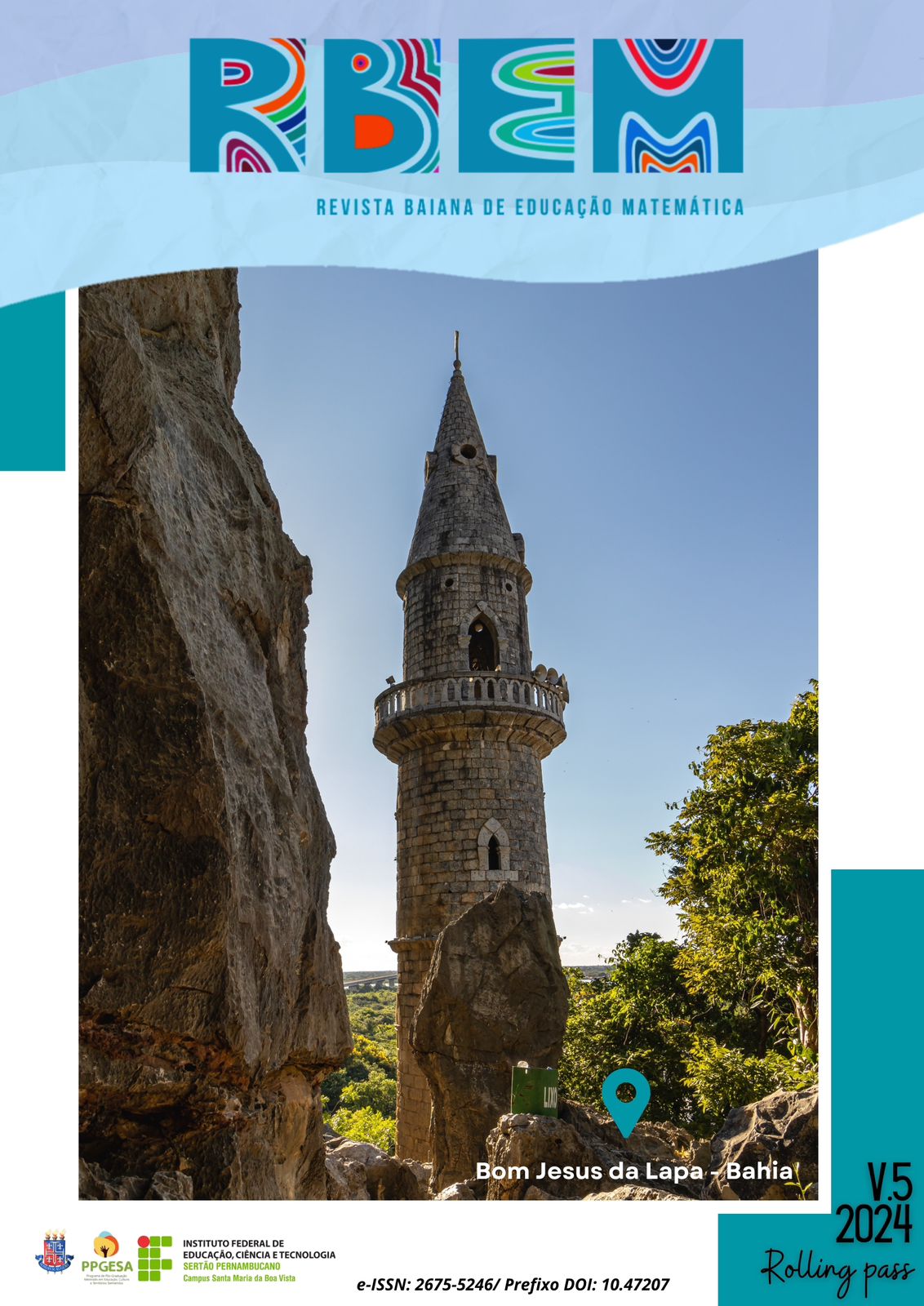Teacher Training in a Mathematics Education Laboratory: An Analysis of Teacher Productions
Main Article Content
Abstract
Mathematics teaching in elementary school faces specific challenges that require innovative pedagogical approaches beyond the traditional method. In this context, manipulative materials play a crucial role, transforming abstract concepts into concrete experiences and promoting meaningful learning, therefore being a fundamental component of any Mathematics Education Laboratory. This article analyzes how graduates of a Master's course in Primary Education Methodology, with a specialization in Mathematics Teaching, integrated these materials into the manuals produced. The research categorized the integration of materials into criteria of depth and curricular transversality. The results indicate that the majority of manuals present varying levels of integration and pedagogical exploration, with emphasis on two that achieve a transversal and detailed approach. The analysis reveals that, despite the proven benefits, the effectiveness of manipulative materials depends on teacher training and clarity in pedagogical objectives.
Downloads
Article Details

This work is licensed under a Creative Commons Attribution-NonCommercial-ShareAlike 4.0 International License.
Uma nova publicação de artigo anteriormente publicado na Revista Baiana de Educação Matemática, fica sujeita à expressa menção da precedência de sua publicação neste periódico, seguindo as normas de referência. Autores que publicam na RBEM concordam com os seguintes termos:
-
O Conselho Editorial se reserva ao direito de efetuar, nos originais, alterações de ordem normativa, sintática, ortográfica e bibliográfica com vistas a manter o padrão culto da língua, respeitando, porém, o estilo dos autores. As provas finais poderão ou não ser enviadas aos autores.
-
Autores mantém os direitos autorais e concedem à revista o direito de primeira publicação, com o trabalho simultaneamente licenciado sob a Licença Creative Commons Attribution (CC BY-NC-SA).
-
Autores têm autorização para assumir contratos adicionais separadamente, para distribuição não-exclusiva da versão do trabalho publicada nesta revista, exemplo: publicar em repositório institucional ou como capítulo de livro, com reconhecimento de autoria e publicação inicial na RBEM.
-
Autores têm permissão e são estimulados a publicar e distribuir seu trabalho online — em repositórios institucionais, página pessoal, rede social ou demais sites de divulgação científica.
References
ADEGBOYEGA, S. M.; AMADI, J. C.; TALEY, I. B.; BUKAR, H. I. Use of manipulatives for mathematics teaching and learning. In: Trends in Primary and Secondary School Mathematics Education, KATAPUNO-PRINTS, 2023. p. 222-232. Disponível em: https://www.researchgate.net/publication/376313200_CHAPTER_21_USE_OF_MANIPULATIVES_FOR_MATHEMATICS_TEACHING_AND_LEARNING. Acesso em 5 nov. 2024.
ARNAL-BAILERA, A.; ARNAL-PALACIÁN, M. Comparison of Mathematical Activities with Preservice Teachers: Manipulatives Vs. Paper and Pencil, In: NEW PERSPECTIVES IN SCIENCE EDUCATION 13th Edition. Bologna, Italy: Filodiritto Publisher, 2024. p. 422-428.
ARNAL-BAILERA, A.; ARNAL-PALACIÁN, M. Pre-service teachers develop their mathematical knowledge for teaching using manipulative materials in mathematics. EURASIA Journal of Mathematics, Science and Technology Education, v. 19, n. 9, em2318, July 2023. DOI: https://doi.org/10.29333/ejmste/13470
BALL, D.L.; THAMES, M.H.; PHELPS, G. Content knowledge for teaching: What makes it special? Journal of Teacher Education, 59(5), 389–407, 2008.
BARDIN, L. Análise de conteúdo (L. A. Reto & A. Pinheiro, Trads.). Edições 70, 2011.
DE OLIVEIRA, D. Resolução de problemas sobre Planificação do cubo: uma abordagem através de materiais manipuláveis. Revista Baiana de Educação Matemática, v. 4, n. 01, p. e202318, 2023. DOI: https://doi.org/10.47207/rbem.v4i01.17720
ENUMA, O. P., IJEH, S. B. Effects of Concrete Manipulative and Lecture Approaches on Mathematics Students’ Academic Achievement in Delta North Senatorial District. International Journal of Education and Evaluation (IJEE), E-ISSN 2489-0073. v. 10, n. 2, p. 161-172. 2024. DOI: https://doi.org/10.56201/IJEE
GOMES, A. Que conhecimento matemático para ensinar nos anos iniciais? Desafios para a formação. Roteiro, 46, e23839. 2021. DOI: https://doi.org/10.18593/r.v46i.23839
HILL, H. C. et al. Mathematical knowledge for teaching and the mathematical quality of instruction: an exploratory study. Cognition and Instruction, v. 26, n. 4, p. 430-511, 2008.
LARBI, E.; MAVIS, O. The Use of Manipulatives in Mathematics Education. Journal of Education and practice, v.7, n.36, p.53-61. 2016.
PALHARES, P. A transição do pré-escolar para o 1.º ano de escolaridade: análise do ensino e das aprendizagens em Matemática. 2000. Tese (Doutoramento em Estudos da Criança). Braga: Universidade do Minho, 2000.
PALHARES, P.; GOMES, A.; MAMEDE, E. A formação para o Ensino da Matemática no Pré-escolar e no 1.º Ciclo: Análise teórica e estudo de caso. Revista Portuguesa de Formação de Professores, v.1, p. 87-101. 2001.
PIMM, D. Symbols and meanings in school mathematics. London: Routledge, 1995.
QUANE, K. The confluence of attitudes towards mathematics and pedagogical practice: evaluating the use of mathematical manipulatives. Mathematics Education Research Journal, p. 1-30. 2024. https://doi.org/10.1007/s13394-024-00494-0.
SZENDREI, J. Concrete materials in the classroom. In: Bishop, A.J. et al. (Eds.). International Handbook of Mathematics Education. Dordrecht: Kluwer,1996. p. 411- 468.

